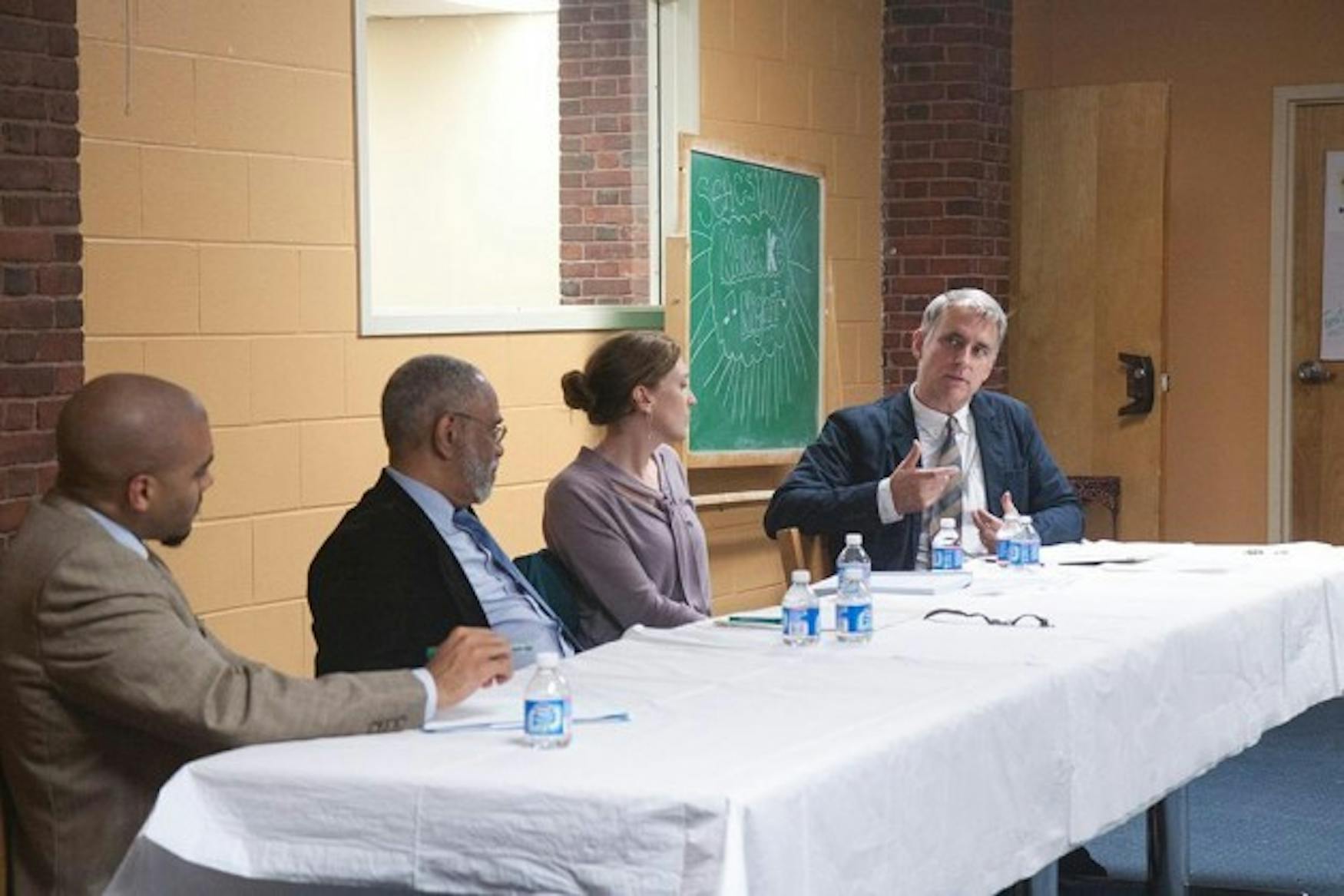Professors discuss issues of race and gender in elections
One week before the election, three professors participated in a panel discussing important political issues-but ones that have largely been ignored by the presidential candidates. The event, called "Race and Gender in the 2012 Election," was organized by the African and Afro-American Studies Department and featured Prof. Jill Greenlee (POL), Prof. Daniel Kryder (POL) and Prof. Ibrahim Sundiata (HIST).
The panel was moderated by African and Afro-American Studies Chair Prof. Chad Williams, who also helped put the event together. It was the second in a series of two panels, the first taking place on Tuesday, Oct. 23 in Boston and featuring Prof. Anita Hill (Heller); Profs. Lani Guinier and Kenneth Mack of Harvard Law School; and Callie Crossley, a National Public Radio host.
"AAAS felt that it was important to discuss the upcoming election and, specifically, how issues of race and gender have shaped the presidential campaign," said Williams in an email to the Justice.
Williams opened the discussion on Tuesday by mentioning that the issues of race and gender have been largely avoided by both presidential candidates. When they have been mentioned, he said, they are "branded as distractions, seen as small in relation to seemingly more pressing matters like the economy and the future of the middle class."
He used Gov. Mitt Romney's comment about "women in binders" as an example of how an important issue can get sucked into a "superficial debate made for late-night TV comedy."
After Williams' opening comments, each of the speakers on the panel spoke about race and gender as political issues, with each focusing on his or her particular expertise.
Greenlee spoke first and talked mainly about gender. Her central point involved what she called "mom monikers." She said that the ways in which women have been discussed this election season are misleading, especially when they are referred to as "waitress moms" or "Walmart moms."
According to Greenlee, "this distorts the picture that people have of how women participate in the electorate. Walmart moms, like soccer moms and security moms and mortgage moms, are not real voting blocks. They are slices and dices of the female electorate. ... There is a hyperfocus on who these women are and what they are saying."
Kryder then spoke about the growing role of Hispanic voters in electoral politics. He said that in private comments, which he believes are more significant than public comments, both presidential candidates have touted the importance of Latino voters, especially in the evolution of the Democratic party.
"These are important points of commonality between two candidates who agree on very little," he said. "When you get them behind closed doors, they're observing something ... very substantial, that maybe has not attracted enough attention in this election cycle."
Finally, Sundiata spoke about President Barack Obama's effect on world policy and the differences between the way that U.S. citizens view Obama and the way that the rest of the world views him.
"This does not affect our electoral politics," he said, "but it does affect where we're going to put our emphasis in a possible Obama second term."
He went on to describe how Obama's opposition to Muammar el-Qaddafi ended the reign of one of the last "great Pan-African leaders" and how Obama has essentially been the "death knell" for Pan-Africanism, a movement that aims to unite people of African ancestry across the world.
These opening statements were followed by questions from the Williams and the audience.
Kryder brought up an interesting topic during the question-and-answer period when he mentioned the new and powerful effects that "big data'" can have on an election.
"Our behavior online leaves what micro-targeters call 'exhaust,' which can then be used to create a profile or persona for my IP address, which then allows for the micro-targeting of particular appeals to smaller and smaller segments of the electorate, including for example, single mothers," he said in response to a question from Ryan LaRochelle, a Ph.D. candidate in Politics.
Williams said that his department and others plan to hold similar events in the future, in order to foster a sense of community "at Brandeis and beyond."



Please note All comments are eligible for publication in The Justice.